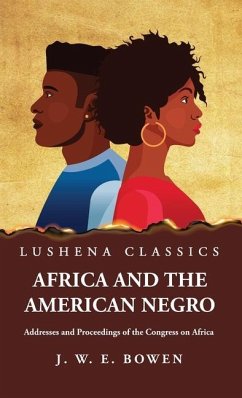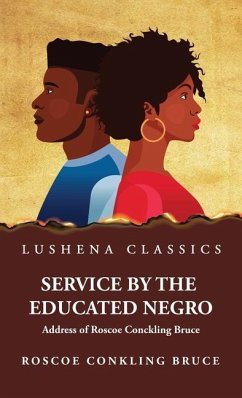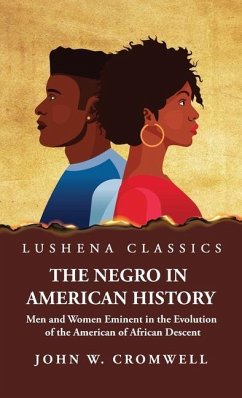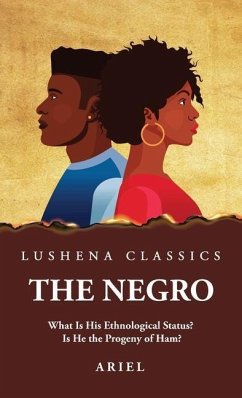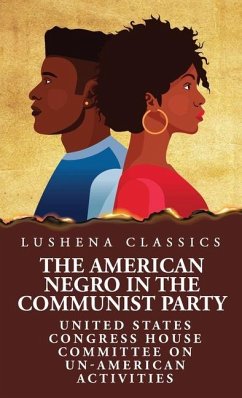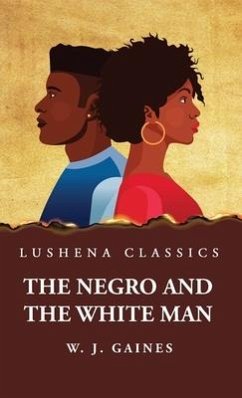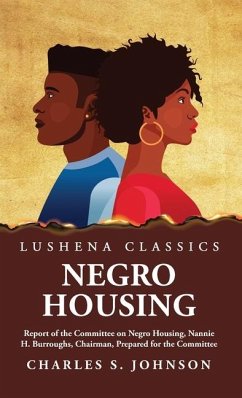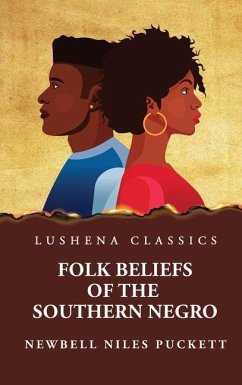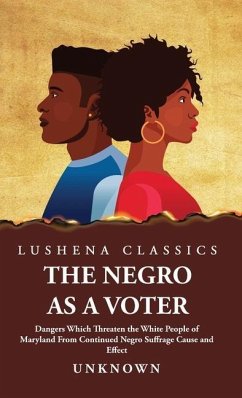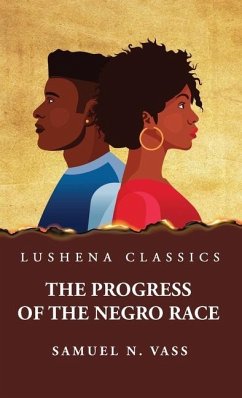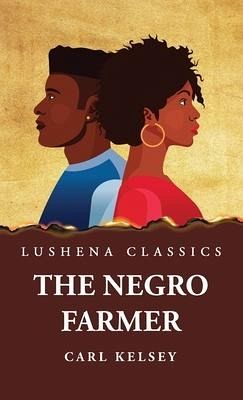
The Negro Farmer
Versandkostenfrei!
Versandfertig in über 4 Wochen
21,99 €
inkl. MwSt.
Weitere Ausgaben:

PAYBACK Punkte
11 °P sammeln!
Chapter I. INTRODUCTION. In the last three hundred years there have been many questions of general interest before the American people. It is doubtful, however, if there is another problem, which is as warmly debated to-day as ever and whose solution is yet so uncertain, as that of theN egro. In the second decade of the seventeenth century protests were being filed against black slavery, but the system was continued for nearly 250 years. The discussion grew more and more bitter, and to participation in it ignorance, then as now, was no bar. The North had less and less direct contact with theN ...
Chapter I. INTRODUCTION. In the last three hundred years there have been many questions of general interest before the American people. It is doubtful, however, if there is another problem, which is as warmly debated to-day as ever and whose solution is yet so uncertain, as that of theN egro. In the second decade of the seventeenth century protests were being filed against black slavery, but the system was continued for nearly 250 years. The discussion grew more and more bitter, and to participation in it ignorance, then as now, was no bar. The North had less and less direct contact with theN egro. The religious hostility to human bondage was strengthened by the steadily increasing difference in economic development which resulted in the creation of sectional prejudices and jealousies. The North held the negro to be greatly wronged, and accounts of his pitiable condition and of the many individual cases of ill treatment fanned the flames of wrath. The reports of travelers, however, had little influence compared with the religious sentiments which felt outraged by the existence of bond servitude in the land. Through all the years there was little attempt to scientifically study the character of the problem or the nature of the subject. A mistaken economic sentiment in theS outh and a strong moral sentiment at theN orth rendered such studies unnecessary, if not impossible. The South, perceiving the benefits of slavery, was blind to its fundamental weaknesses, and theN orth, unacquainted with Negro character, held to the natural equality of all men. Thus slavery itself became a barrier to the getting of an adequate knowledge of the needs of the slave. The feeling grew that if the shackles of slavery were broken, theN egro would at once be as other men. The economic differences finally led to the war. It is not to be forgotten that slavery itself was not the cau





